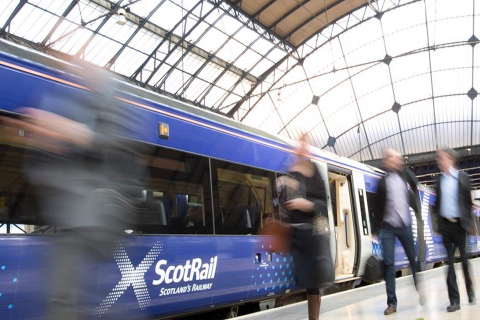Europe’s busiest mixed traffic route blocked

The West Coast Main Line, which connects London with Birmingham, Manchester Liverpool and Glasgow, is blocked by a freight train derailment. The incident happened overnight Wednesday-Thursday, at a location north of Preston. Services to Scotland (Glasgow and Edinburgh) from London, Birmingham, Manchester and Liverpool are all severely affected. The main passenger operations have advised passengers not to travel.
A derailed freight train on the West Coast Main Line has caused havoc across a wide part of the UK network. A train has come off the tracks between Carlisle and Oxenholme Lake District. This is an intensively used twin-track section of the line, with limited alternative routes. The WCML is an indispensable part of the UK freight network. It also connects many of the most populous cities in Great Britain.
Recovery is proving difficult
News broke on Wednesday evening that an unspecified freight train had derailed near Oxenholme, a popular destination for visitors to the English Lake District. ProMedia understands that the train was operating from Hardendale Quarry, near Shap Summit (the highest point on the West Coast Main Line). The destination appears to have been Magram Steelworks in South Wales.

Three wagons, believed to be empty, derailed during switching operations at points adjacent to the main line. As such, recovery is proving difficult. The section of the main line is only two tracks at this point, with limited access. Bringing in recovery vehicles has meant the closure of the line.
Limited alternative routes
Freight is still passing the site of the derailment, but it is severely delayed. Some services were reporting delays of over six hours. The line normally carries an intensive passenger service, alongside a full timetable of freight trains. The passenger service is mainly long-distance express services and inter-regional trains operated by Avanti West Coast and TransPennine Express. Local services are also provided, and operated by Northern.
The freight load on the WCML is mainly fast intermodal traffic. At this point on the line, traffic is mostly generated by the three large intermodal terminals in Central Scotland. However, there is a significant requirement to handle bulk trains. The high-priority nuclear flask trains, operated by DRS, do not normally use this section of the line. Alternative routes (via the coast or via Settle) are not electrified. This has made rerouting passenger trains impracticable.
Original estimates from National Rail Enquiries hoped for the line to be restored by this morning (Thursday, 30 May). Later reports said the line would not be operational until late on Thursday evening. The incident, although relatively minor, will be the subject of a routine enquiry by the Rail Accident Investigation Branch.




